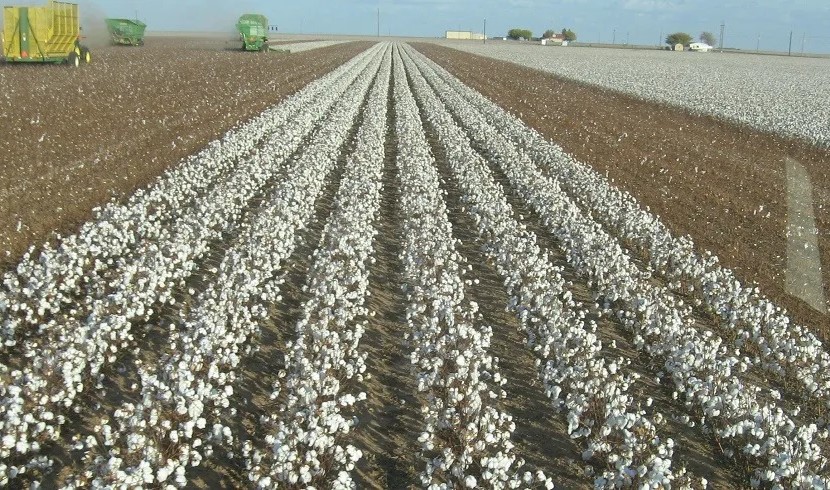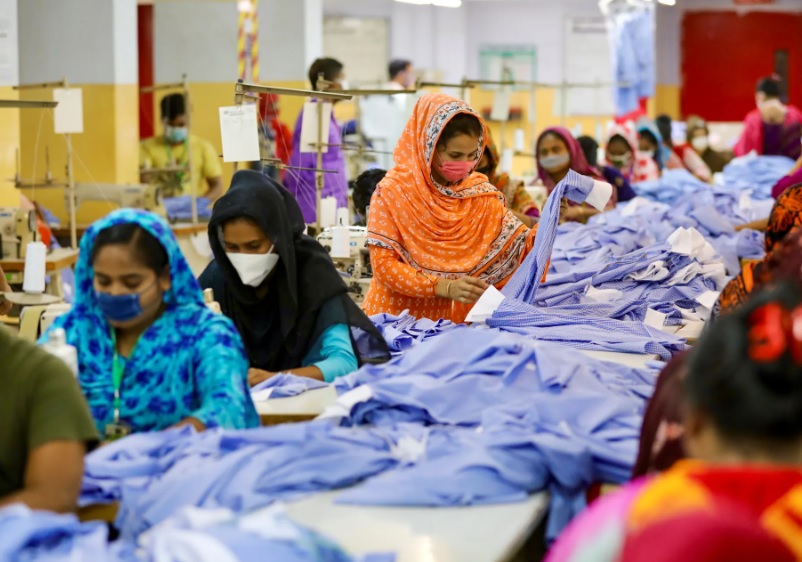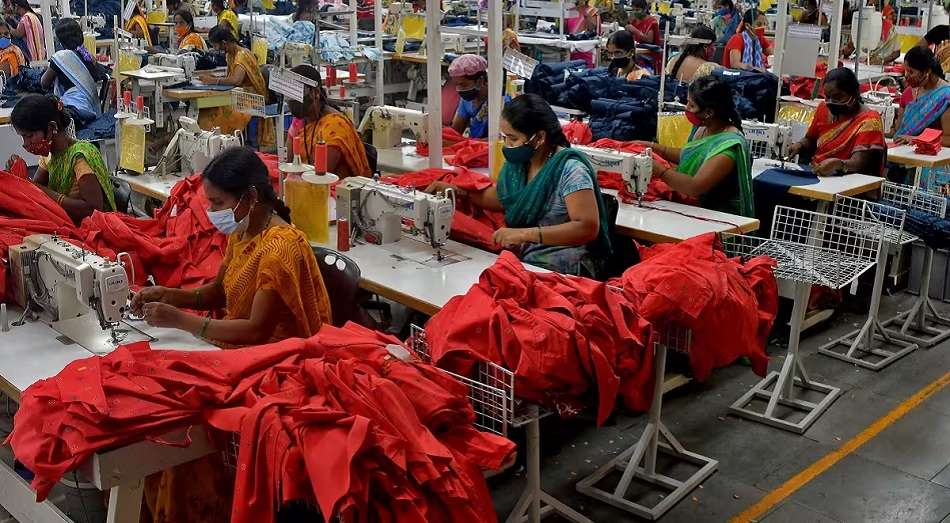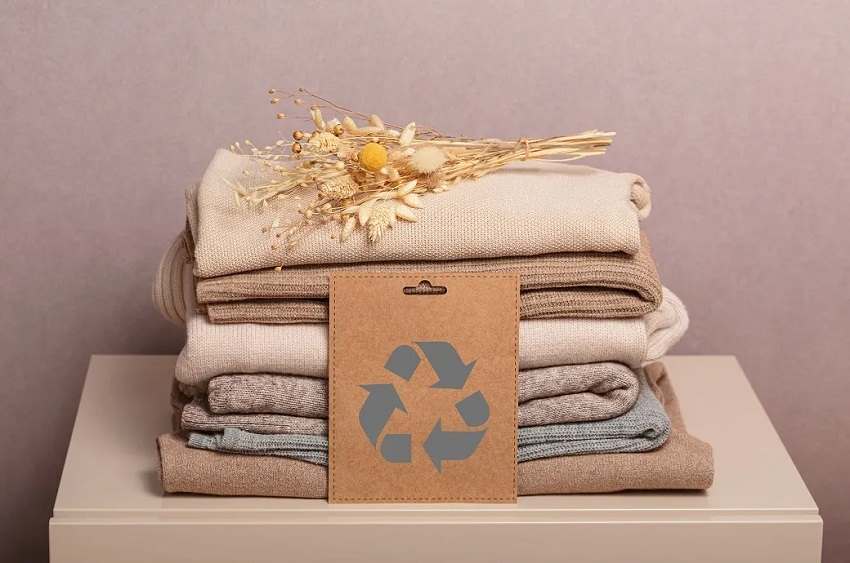FW
Union textile minister Smriti Irani is back on ‘WearHandloom' that has been trending on Twitter. A selfie in a cotton sari, with the hashtag 'Cotton’s-Cool', and asked netizens to post their selfies and tag five friends was tweeted by her on Tuesday. The hashtag started trending, with people still tweeting their pictures in cotton attire.
Irani has kept a low profile in the textiles ministry, her Twitter campaigns seem to be a hit, enforcing her image as a social media savvy politician. It's the second twitter campaign of Irani which has managed to get people talking, even as she has consciously stayed away from traditional media, preferring to be visible on twitter and Instagram.
Irani's #CottonIsCool campaign certainly got the attention of twitterati. Following up her selfie with posts in which she termed cotton as a "celebration of Indian summer and the cotton industry", Irani had celebrities and regular folk, not to mention her Cabinet colleagues posting pictures of themselves in cotton wear.
The list had names like Advaita Kala, Amish Tripathi, Rajat Sharma, Gul Panag, Randeep Hooda, Anita Dongre, Vir Sanghvi, Virender Sehwag, Mohammed Kaif, Manish Malhotra, Kirron Kher, Hema Malini and Vijender Singh. Those from the government included Rajiv Pratap Rudy, Kiran Rijuju, Piyush Goyal, Manohar Lal Khattar, Swapan Dasgupta etc. Minister for railways Suresh Prabhu and minister of state for civil aviation Jayant Sinha expressed their support as well, with Prabhu calling it his personal choice.
Mothercare reported its latest full-year results and had good news with the second half having returned to underlying profit in its core UK operations. The mother and child specialist’s focus on digital also helped position it for future growth with 41 per cent of its sales now coming online after a 7.8 per cent rise last year.
UK comparable sales rose 1.1 per cent, margin were up 54bps, 70 per cent of the store estate is now in the newly refurbished club format, 10 new website opened around the world and international total sales growth was 10.6 per cent.
CEO Mark Newton-Jones says the company is now in the third year of its turnaround. He further added following a difficult start to the year, the UK recovered in the second half, returning to underlying profit for the first time in six years. International markets showed signs of recovery with strong growth in Russia and Indonesia, and a sales recovery in China, albeit the country is yet to return to positive cash profit.
Digital revenue is currently on a growth trajectory to be over half of its turnover with 83 per cent of traffic coming from mobile. Store numbers are being reduced steadily. Newton-Jones stressed stores still count, outlining a vision that could be repeated across the retail sector as the digital revolution continues.
The Confederation of Indian Textile Industry (CITI), the apex body representing the entire textile industry in the country, has elected its new office-bearers at its committee meeting held recently. J Thulasidharan, Managing Director of Coimbatore-based The Rajaratna Group of Mills, has been elected the new chairman of the apex body.
Thulasidharan, who was the Vice Chairman of CITI till now, has also served as the chairman of The Southern India Mills’ Association (SIMA), president of Open End Spinning Mills Association and SIMA Cotton Development and Research Association (SIMA CD&RA). He is also the president of Indian Cotton Federation, formerly known as South India Cotton Association who holds directorship in Coimbatore Capital and Coimbatore Commodities.
CITI is the apex body representing the entire textile industry in the country. Sanjay K Jain, Managing Director of T T, a vertically integrated textiles company (fibre to fashion) having its manufacturing units in various States of the country is the new Vice Chairman. T Rajkumar has been elected the deputy chairman
UK industrial thread giant Coats’ sales in the four months ending April went up seven per cent at constant exchange rates and four per cent on an organic basis. Reported sales were up two per cent in the apparel and footwear sub-division and 17 per cent in performance materials. But the crafts division saw sales falling three per cent.
Craft sales fell largely due to the business disruption caused by the tornado strike at the distribution centre in the US. However, the impact of lost profits and incremental costs of re-establishing operations there are expected to be covered in full by the group’s insurance cover.
Coats is an UK industrial threads giant. The four per cent growth in total group sales on a reported basis, which is lower than the five per cent constant exchange rate growth, reflects the stronger dollar, primarily against the Turkish lira, Mexican peso and Egyptian pound, compared to the same period in 2016.
The good results came despite continued mixed demand from clothing retailers and manufacturers. An improvement in the US consumer durables markets helped as also the contribution of Gotex, acquired in June 2016.
Coats has had a strong start to the year and now expects to deliver 2017 full-year results ahead of expectations.
Burberry has had a 21 per cent underlying drop in full-year pretax profit. Burberry is a British luxury fashion house known for its trench coats. Last year Burberry benefited from the drop in value of pound following the vote to leave the EU, boosting operating profits by nearly 130 million pounds. For the full year, its adjusted pretax profit came in at 462 million pounds, in line with expectations and up ten per cent on a reported basis but down 21 per cent when the impact of currency is stripped out.
Revenue for year ending-March fell two per cent on an underlying basis to 2.8 billion pounds. Pretax profit is expected to edge up to 468 million pounds for the current year.
The brand is trying to refresh its product range, become more efficient and improve the performance of its stores, where its space delivers less sales than rivals.
Burberry was founded in 1856 and is a leading luxury brand with a global business. The assortment covers a broad spectrum from classic trench coats to extravagant, innovative fashion collections. The range covers men’s wear, women’s wear, children’s wear, coats, dresses, shoes, accessories, bags, scarves, beauty and fragrance.
Azerbaijan is expected to increase its silk production two or three times this year. In 2016, Azerbaijan produced 71 tons of silk. The history of sericulture in Azerbaijan dates back to almost 1500 years. When it comes to silk in Azerbaijan, the first place that comes to mind is the ancient city of Sheki, which was once considered the largest center for the production of silk and silk farming in the Middle Ages. Delicate fabrics, beautiful clothes, and colorful kelagayis (silk headscarves) manufactured by Sheki craftsmen from raw silk were exported to foreign countries, so the city became famous for its silk throughout the world.
In the Soviet period, Azerbaijan ranked second after Uzbekistan for the production of silk cocoon, but was considered first in fiber quality. The country annually produced 7,800 tons of raw cocoons in 1960 to 1970.
Azerbaijan's Shirvan region started becoming known for its silk industry as early as the ninth century. By the 11th and 12th centuries, the silk produced in Shirvan was already famous throughout Russia and Western Europe. Silk cloth was exported to Italy by Venetian and Genoese merchants who maintained commercial offices along the shores of the Caspian.
There are three main species of mulberries - white, red and black – and all of them are widely cultivated throughout Azerbaijan.
"On March 18, 2017, three European Commission bodies had sent a joint communiqué that said it was essential that the Bangladesh government implement the four recommendations made by an International Labor Organization committee last year, or risk being shut out from the Generalized Scheme of Preferences (GSP) that it enjoyed."
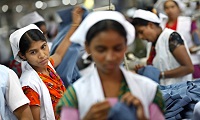
On March 18, 2017, three European Commission bodies had sent a joint communiqué that said it was essential that the Bangladesh government implement the four recommendations made by an International Labor Organization committee last year, or risk being shut out from the Generalized Scheme of Preferences (GSP) that it enjoyed. The four issues are – full alignment of respectively, the EPZ draft law, the Bangladesh Labor Act, with the UN core labor convention modalities for establishing trade unions and the right of trade unions to operate freely. Under the Everything But Arms (EBA) preferential tariff scheme for all products, Bangladesh enjoys duty free market access to the EU countries, which is the single largest export destination for the RMG products, a postponement of this facility could introduce 12 per cent tariff on imports from Bangladesh.
The picture in China and India
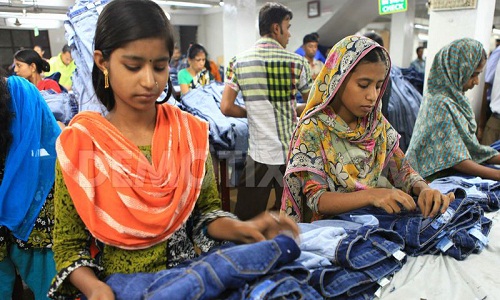
In China, workers do not have the right to join or form trade unions of their choice. There is only one lawful trade union nationwide, the government controlled All-China Federation of Trade Unions (ACFTU), which acts as the leading body of all local union organizations, which are allowed under the Trade Union constitution. There is no right to labor strikes in Chinese law. Freedom of labor strikes’ was written in the Constitution of 1975 and 1978, but was removed in 1982. In a paper published by the ITUC in 2015, China was listed as one of the worst countries in the world to work in. The report cited physical attacks and threats against workers who participated in strikes by both employers and the government.
In comparison, there are 50,000 registered unions in India and most of them are under some six or seven central trade unions. India is the worst performing country among countries in Asia where FWF operates in both the Gender Development and the Gender Inequality Indexes, according to the 2015 Human Development Index report. Similarly, the World Economic Forum ranks India 108th out of 145 countries in the 2015 Global Gender Gap Index, whereas Bangladesh ranks 64th. The most common violations related to freedom of association involve police violence, and the arrest and dismissal of striking workers and trade union leaders in India.
Bangladesh government has already kept the provision of forming trade unions in the export processing zones, in line with the ILO convention. Commerce minister Tofail Ahmed had said if 50 per cent members of the Workers Welfare Association (WWA) of the EPZ factories consented to registering as a trade union, then the WWA would be allowed to register under Ministry of Labor and Employment as a trade union. However, under pressure from abroad and NGOs, Bangladesh government is currently considering further amendment to labour laws to satisfy them. State minister for labor Mujibul Haque said that there is a need for amendment to some provisions of Labor Act and that they will discuss with the national tripartite consultation committee on the amendment.
Forming trade union is not mandatory anywhere in the world but forming WWA is mandatory in Bangladeshi RMG industries. WWA is a constructive and effective model how workers’ awareness increases and grievances are being resolved constructively. This model has proved itself to be considered as an example for whole world suffering for workers’ right assurance. And at this point when most of the Bangladeshi units are practicing WWA model, extra pressure from international government and non-government organizations to rename such model as trade union will only increase instability in the sector, feel industry experts.
Researches say strict labour laws never brought benefits to the workers. Sudden reformation could affect the sector and many companies could go out of business and many workers could lose their job. In a country like Bangladesh where structural democracy is not well practiced not even in universities and top professional communities how it will be beneficial in less educated people’s community like labourers. Most of the time workers have been exploited by the ill motive trade union leaders in Bangladesh in the past, questioned industry experts.
Jeanologia has completed a decade in Bangladesh. It has become an expert technology partner of the main production centers. Its global solutions, based on clean technologies, are able to increase the efficiency and the automation of finishing processes without harming the creativity and obtaining the added value of sustainability for the garments. The company is now participating in the Bangladesh Denim Expo in Dhaka.
Jeanologia, based in Spain, is a leader in the development of sustainable technology for the textile industry. The company's innovative solutions are able to increase the productive capacity of laundries, reduce the time-to-market and offer an innovative, creative and ecological product.
Jeanologia has not only managed to reduce time-to-market but allows water savings of up to 95 per cent of and 90 per cent of chemicals use in finishing processes of jeans. It has taken on the challenge of transforming Bangladesh's production centers into eco laundries, integrating all technologies: laser, ozone and nano-bubbles. The goal is to improve competitiveness of laundries by helping them increase production and eliminate all processes that are detrimental to workers and the environment.
Bangladesh ranks second in the world behind China in jeans production. Jeanologia's purpose is to increase the production capacity of Bangladeshi manufacturers, especially in denim, by providing advisory services and state-of-the-art technology to improve the efficiency, design and added value of end products.
Workers at Aditya Birla NuvoBSE 0.02 per cent group firm Jaya Shree Textiles in West Bengal have gone on strike and the company has termed it illegal. The workmen of Jaya Shree Textiles at Rishra, Hoogly, have gone on illegal strike from May 16, Aditya Birla Nuvo
The turnover of Jaya Shree Textiles division constituted about 25 per cent of the total standalone turnover for the nine-month period ended December 31, 2016. Jaya Shree Textiles is engaged in manufacturing linen yarn, linen fabrics, worsted yarn and wool tops..
The total impact of the strike on overall operation of the company shall not be material. For the nine months ended December 31, Aditya Birla Nuvo had reported a standalone net profit of Rs 827.29 crore. Shares of the company were trading at Rs 1,704.30, up 0.12 per cent on BSE. Jaya Shree Textiles a unit of Aditya Birla Nuvo which is a leading player in Linen and wool segment of the global textile Business.
Currently, old denim products are dumped in landfills, and dye run-off from denim production can pollute local water supplies.
On an average, the life cycle of a pair of denim jeans produces more than 30 kg of CO2 and uses around 3500 liters of water, the equivalent of running 44 baths.
An unique process called circular denim pulverises used denim into ultrafine particles and then coats or prints the color particles on to undyed new denim to create the typical denim appearance.
This way, the old denim is reused, and new denim does not have to be dyed using the traditional yarn dyeing approach, which consumes a huge amount of water and energy.
If necessary, the color of the fine particles can be enhanced or changed easily before the coating or printing process. This will also help create a new fashion effect for denim products.
This process also allows dye to be reused, minimising water use and effluent discharge.
The circular denim approach is a completely new one, addressing both denim waste and new denim manufacturing at the same time.
More than 450 million denim jeans are sold globally each year and the retail jeans market is estimated to reach 56 billion dollars by next year.





